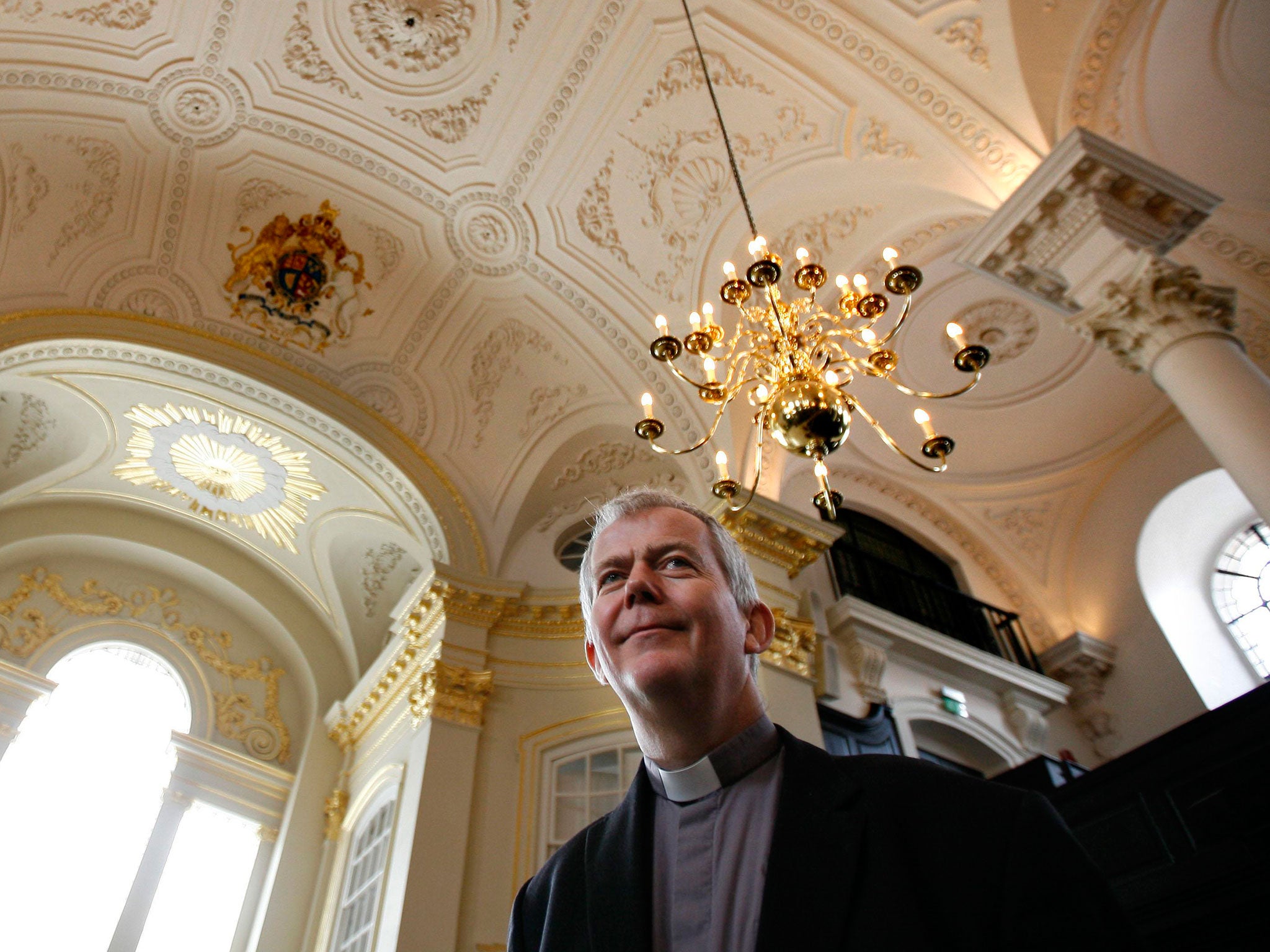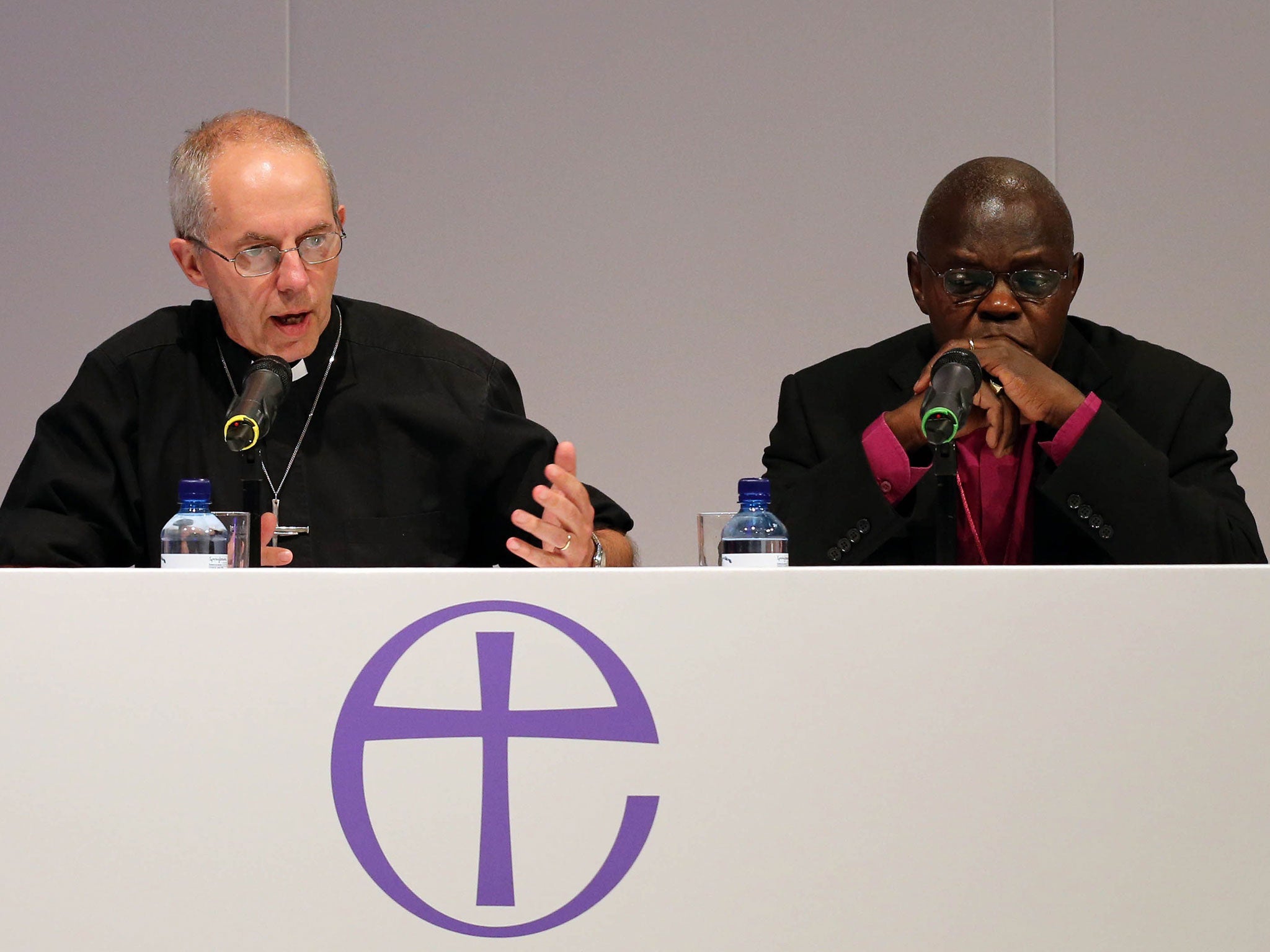Bishop of Salisbury: Congregants should fast once a month to protect against climate change
When the General Synod is held in July its members will be asked to vote on holding a day of prayer and fasting for 'climate justice'

Your support helps us to tell the story
From reproductive rights to climate change to Big Tech, The Independent is on the ground when the story is developing. Whether it's investigating the financials of Elon Musk's pro-Trump PAC or producing our latest documentary, 'The A Word', which shines a light on the American women fighting for reproductive rights, we know how important it is to parse out the facts from the messaging.
At such a critical moment in US history, we need reporters on the ground. Your donation allows us to keep sending journalists to speak to both sides of the story.
The Independent is trusted by Americans across the entire political spectrum. And unlike many other quality news outlets, we choose not to lock Americans out of our reporting and analysis with paywalls. We believe quality journalism should be available to everyone, paid for by those who can afford it.
Your support makes all the difference.Vicars should be trained in eco-theology and encourage their congregants to fast once a month in order to play a role in “safeguarding God’s creation”, the Bishop of Salisbury will argue at a meeting of Church of England leaders next month.
When the General Synod is held in York in July its members will be asked to vote on a church position on holding a day of prayer and fasting for “climate justice” on the first day of every month. They will also be asked to decide whether clergy’s training should “include components of eco-justice and ecotheology.”
The recommendations come after the Pope called the planet’s environmental destruction a sin and called on Catholics to “hear the cry of the earth.”
The Rt Revd Nicholas Holtam, who chairs the church’s Environment Working Group, outlined how care for the planet could become part of clergy training. In a background paper to a vote on the issue, he wrote: “Creating options and pathways for including environmental ethics and “eco-theology” in the training curriculum could encourage and support the church leaders of the future (especially younger candidates) to be enablers for others in seeking change and a sustainable future.”

A programme of pilgrimages to the Paris United Nations climate change conference is being planned in November. As well as urging world leaders in Paris to agree “long-term pathways to a low-carbon future,” church leaders will vote in July on whether they should “encourage parishes and dioceses to encourage prayer and fasting for climate justice on the first day of each month.”
The Rt Revd Holtam wrote that fasting “is one way in which every member of the church can play a constructive role in movement for change and for the safeguarding of God’s creation - our habitat, the planet.”
The Bishop of Salisbury was inspired by an initiative from the Faith and Climate Network encouraging Christians to pray and fast on the first day of every month “for a meaningful and just global climate agreement at the UN Climate summit.”
Speaking at a press briefing, William Fittall, Secretary of the Archbishops’ Council, said: “Fasting is a way of giving intensity to prayer and in this case it’s also a symbolic act because part of the problem with the threat to the planet is over-exploitation and pursuing lifestyles that are not sustainable long term. Particularly for the richer nations [like ours] signalling the giving up of something is part of that process.”
Mr Fittall cautioned that nobody would be forced to take part in a climate change fast. “The Church of England remains a broad church and I don’t think we’re about to got out and impose on people a particular party line in relation to those sorts of matters... Nevertheless I think the church has been, and will continue to be, prominent in campaigning for measures to combat climate change.”
Since announcing a new policy on climate change-conscious investment last month, the church is now looking at expanding the renewable energy schemes on land it owns. The church already has two wind power schemes in its commercial forestry holdings and other eco power projects are being explored. They are also recently made an agreement with solar energy company, Lightsource, to develop three solar power generation facilities on rural land owned by the church.
The Synod is also expected to give its final approval to measures which would toughen up its policy on child protection. The Safeguarding and Clergy Discipline Measure is designed to make the church’s disciplinary process more effective after an allegation of child abuse. Changes include making it easier to suspend clergy where abuse is alleged, enabling bishops to compel clergy to undergo risk assessments and imposing a duty on clergy, churchwardens and other volunteers to obey the church’s safeguarding policies.
Join our commenting forum
Join thought-provoking conversations, follow other Independent readers and see their replies
Comments